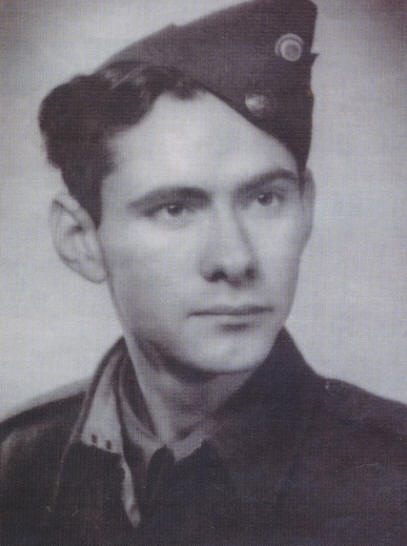

Queer Places:
NRK Office, Bjørnstjerne Bjørnsons plass 1, 0340 Oslo, Norway
 Rolf Løvaas (February
16, 1923 – April 20, 1996) was one of the early pioneers in Norwegian gay movement and was particularly active in the 1950s. In the spring of 1950, he was one of the founders of and the first chairman of what was initially a section of the Danish Association of 1948. Løvaas was born and raised in Trondheim, but moved to Oslo in the autumn of 1945. He first worked in the advertising industry before joining NRK in 1965 as a journalist in Programbladet. In addition to writing articles, he also made many radio programs.
Rolf Løvaas (February
16, 1923 – April 20, 1996) was one of the early pioneers in Norwegian gay movement and was particularly active in the 1950s. In the spring of 1950, he was one of the founders of and the first chairman of what was initially a section of the Danish Association of 1948. Løvaas was born and raised in Trondheim, but moved to Oslo in the autumn of 1945. He first worked in the advertising industry before joining NRK in 1965 as a journalist in Programbladet. In addition to writing articles, he also made many radio programs.
"We had to walk quietlyat the time. Being gay had to be hidden from family and friends," Løvaas stated in an interview with Løvetann just before he died. In December 1950, Rolf Løvaas took a hard line in Dagbladet against §213 of the Penal Code, which prohibited sexual intercourse between men, and called the section an "inhuman relic". He wrote the article under his full name, and was told by a superior that "That kind of thing is not written about!" This is how he learned that a pseudonym could be a necessary privacy. In the years to come, Løvaas wrote a number of newspaper articles and articles, most of them under the name Roald Lønne, as well as letters to newspaper editors and other bodies.
In the autumn of 1951 came the Association's first brochure, "Hva vil vil" , which Rolf Løvaas had prepared together with Øivind Eckhoff . After 2 1/2 years, he resigned as chairman and became a regular board member.
Løvaas wrote letters and attached information about the Association to authors who had mentioned homosexuality, among them Anna Alf Martin Jæger and John Hjertås. Løvaas had read Jæger's youth book Do you see a star and congratulated the author with a bold book. Jæger did not think it was daring to write such a book and referred to Borghild Kranes' feelings of confusion from 1937. It is strange that Jæger does not mention his own novel from 1924, Odd Lyng , with a homosexual protagonist. When it comes to the Association, Jæger wonders if it can seem isolating: "Wouldn't it be better if monkey agitation was carried out to get rid of this section of the law which is a shame for a cultural state."
In 1936, John Hjertås attracted a great deal of attention with the novel Under brottskavlen om gutar på eit internat i Nordland. He would like to meet Løvaas for a conversation about "The League of 1948", but is not "sure whether this is the right way to solve the tangles for those who really matter".
Towards the end of his life, Løvaas became an active gay activist again and wrote several articles in Løvetann and Fritt Fram. He was particularly interested in highlighting the important work that the pioneers did in the Norwegian gay movement. The reason was that many believed that the gay movement in Norway started first with Kim Friele.
His big dream was to be able to establish a center for documentation of gay men in Norway. He himself had collected a large rock archive. In 1995, he tried in vain to get a publisher interested in publishing a book project entitled: "We unleashed a landslide. Glimpses of the gay movement's pioneer period 1950-1965." It turned out to be a script that needed major reworking. It consisted of 74 articles from newspapers and magazines. The introduction was the form of an interview Løvaas did with himself, reproduced in Løvetann no. 1/2000.
In an interview, he claimed to be strongly against outing, but himself wrote in Løvetann a series of interesting articles about "Names from the past", a forty Norwegian men who he probably thinks can be linked to homosexuality. Here we find a number of more or less well-known names, among many other authors and artists, who probably need a closer examination.
By the way, the Norwegian association was not the only association Rolf Løvaas was part of from the start. He was also a member of the Human-Ethical Association from the beginning in 1956. When Rolf Løvaas died in April 1996, Åpen Kirkegruppe, the Norwegian open church group, was responsible for the funeral. A man and a woman were standing guard at the stretcher with their Rainbow flag left when a full crematorium solemnly said goodbye to the first chairman of the Det Norske Forbundet (Norwegian Federation).
My published books: